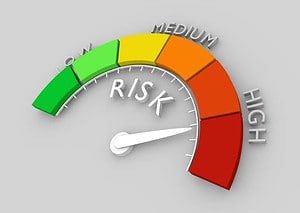Climate Risk Disclosure Now Mandatory for Hospitality Sector
Contributors are not employed, compensated or governed by TDM, opinions and statements are from the contributor directly
Yesterday, the International Sustainability Standards Board (ISSB) issued its inaugural standards, IFRS S1 and IFRS S2, ushering in a new era of sustainability-related disclosures in capital markets worldwide. They create a common language for disclosing the effect of climate-related risks and opportunities on a company’s prospects; and will help to improve trust and confidence in company disclosures about sustainability to inform investment decisions.
Today, the Energy & Environment Alliance (EEA) which has been established to help the global hospitality industry achieve net zero carbon and ESG (environmental, social and governance) stewardship, immediately responded. It said: “This moment marks the beginning of a new era in which sustainability action and disclosure is no longer voluntary but now mandatory.”
Ufi Ibrahim, CEO, EEA, added: “The new standards which initially focus on materiality disclosure, will transform business as usual, embedding sustainability and broader ESG considerations in every aspect of running a business. S1 and S2 will come into effect in the 2024 financial year; so, that gives us just a few months to prepare the hospitality industry for adoption of the new disclosure rules.”
The EEA has already established a working group of industry leaders and experts to deliver meaningful guidance to EEA members and to work with the IFRS and ISSB on the development of sector specific standards.
Ufi Ibrahim said “It is critically important that our industry unites to provide collective and considered input to the IFRS process because the new requirements will impact all our businesses and all our asset values”. With this formal announcement, the Alliance calls on industry leaders, investors and risk and compliance officers to support the EEA working group.
IFRS S1 provides a set of disclosure requirements designed to enable companies to communicate to investors about the sustainability-related risks and opportunities they face over the short, medium and long term. IFRS S2 sets out specific climate-related disclosures and is designed to be used with IFRS S1. Both fully incorporate the recommendations of the Task Force on Climate-related Financial Disclosures (TCFD).
Read more: Climate Risk Disclosure Now Mandatory for Hospitality Sector
Copyright: eTurboNews is Travel Industry News – Travel & Tourism Story Telling Exposed


